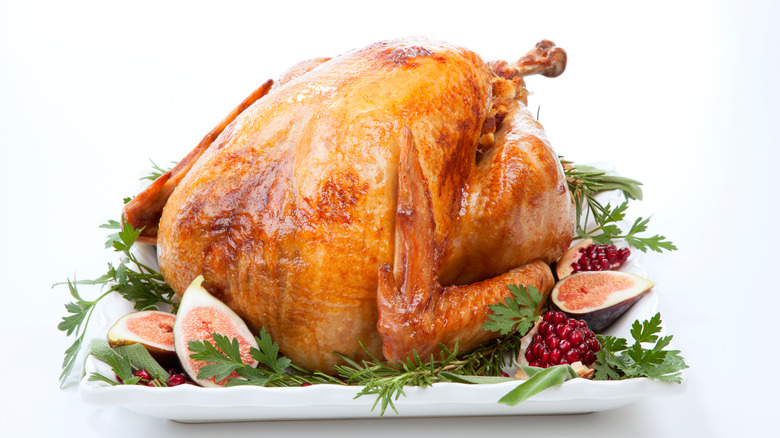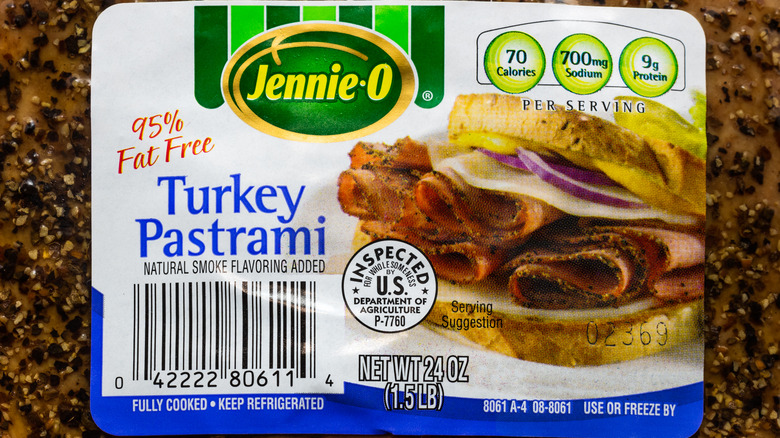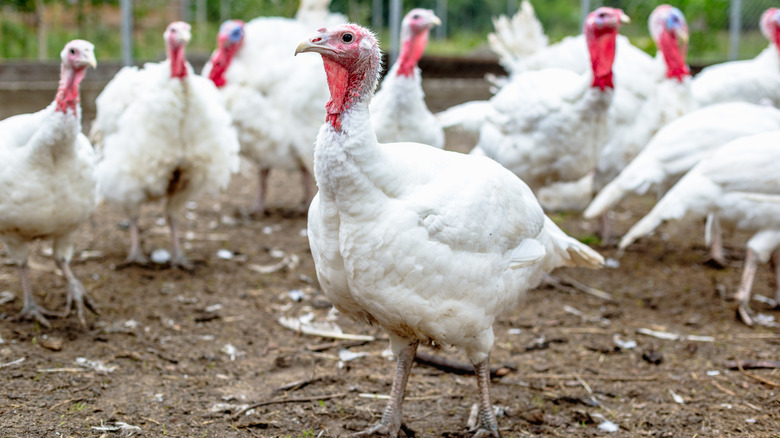Avian Flu Uncovered In A Popular Turkey Brand's Supply Chain
Before COVID-19 was identified in humans for the first time in 2019 (via WHO), the virus that caused it existed only in non-human animals, according to WHO (via AP News). Bats and pangolins have been implicated (without confirmation), with the key takeaway being that some pathogens found "only" in non-human animals are, in fact, capable of mutating such that they may be transmitted to humans. For infectious disease specialists, this notion of "zoonotic transmission" (transmission from non-human animals to humans) is "the most parsimonious explanation," according to the authors of a 2021 academic paper published in the journal, Cell. In fact, the particular virus that causes COVID-19 is the ninth recorded instance of a coronavirus that's transmissible to humans. Further, it is only the latest of seven "human coronaviruses" identified by scientists over the last two decades alone.
However, the pandemic has raised public awareness of the possibility of zoonotic transmission, begging the question: If bats and pangolins could feasibly be behind COVID-19 – which CEPAL called a "disaster" with "unprecedented" impacts - then what havoc might be wreaked by a farm animal with an infectious disease? As a new strain of Highly Pathogenic Avian Influenza (HPAI) makes its way across the globe (via Wired) and into the turkey flock of a major U.S. supplier of turkey meat, public health officials have been working with scientists and national poultry supply associations to prevent this from becoming anything more than a theoretical question.
Avian flu has been identified in turkeys grown for Hormel
On March 26, 2022, the United States Department of Agriculture's (USDA) Animal and Plant Health Inspection Service (APHIS) announced the presence of the "highly pathogenic avian influenza" (HPAI) has now been identified and confirmed in two turkey flocks in Minnesota. As explained in a press release, one is a commercial turkey flock intended for sale by the Jennie-O Turkey Store company, a subsidiary of the Hormel Foods Company. The other is a backyard flock. Although the latter is not meant for commercial distribution, the existence of the avian flu virus in any bird is significant at this point in time. And by that, we mean that the past several months have seen confirmed cases in both wild and domestic birds across the U.S., according to APHIS. This may well spell trouble for the poultry industry. The avian flu could even impact the availability of eggs.
"While bird flu viruses do not normally infect humans," according to the CDC, "sporadic human infections with bird flu viruses have occurred." Like COVID-19, avian flu is not foodborne. And the avian flu uncovered in Jennie-O's commercial supply in Minnesota (as well as that discovered in the backyard flock) is being dealt with accordingly. This includes "depopulating" the affected flocks and keeping them away from the food supply chain (via APHIS).
Jennie-O Turkey Store and Hormel are cooperating with the USDA and others to mitigate the spread
According to a March 26 press release in which Jennie-O Turkey Store, together with its parent company, Hormel, is working with the USDA Animal and Plant Health Inspection Service, the Minnesota Board of Animal Health, the Minnesota Department of Agriculture, and various poultry industry associations in efforts to help keep the spread of this avian flu contained to the fullest extent possible (remember, it is already a global phenomenon, per Wired).
Apparently, Jennie-O has been bracing itself for this kind of scenario for some time now. "Jennie-O Turkey Store has been preparing" for the possibility of avian flu affecting birds in its supply chain and has been taking "extensive precautions to protect the health of the turkeys in its supply chain," the company assured the public. The press release also stated that any updates to Jennie-O Turkey Store and HPAI will be made on the Jennie-O website. Additional information regarding avian influenza and its potential impact on the U.S. supply chain may be answered at the National Turkey Federation Information website.


